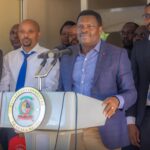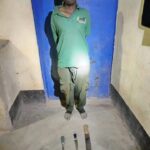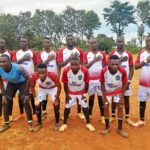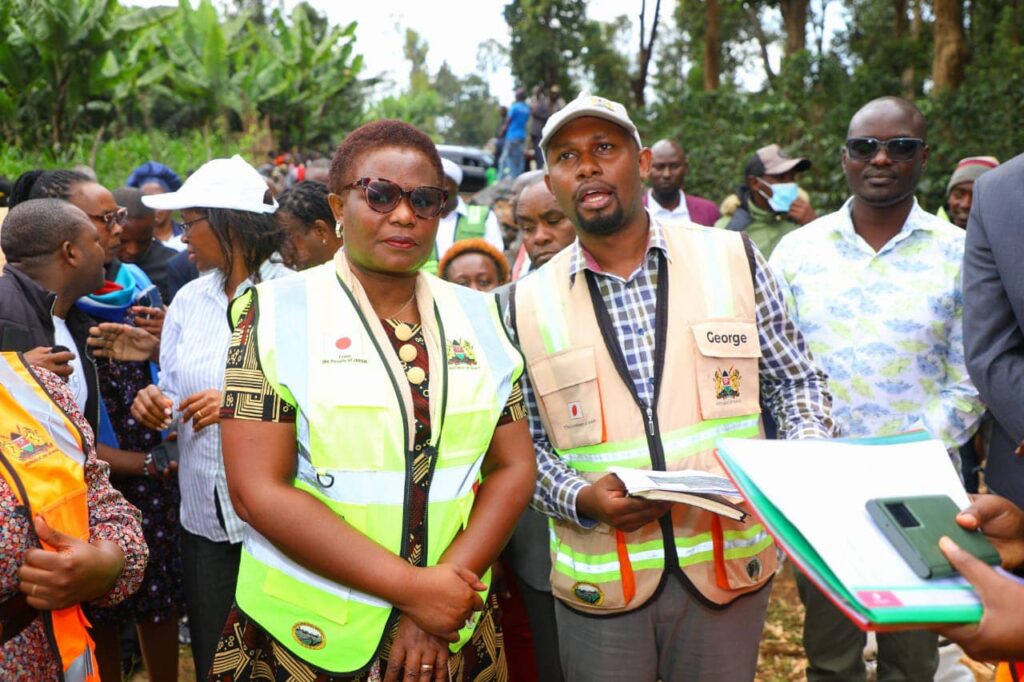
Meru County Governor Kawira Mwangaza (Left) and Core Kenya Project Engineer George Kaluma during a site visit to one of the access roads under rehabilitation.
CORE-Kenya, a non-governmental organisation with funding from the Japan Social Development Fund (JSDF) through the World Bank has launched its third-year phase of rehabilitating access roads in the underserved areas of Gitmbine, Mjini and Majengo in Meru town.
The implementation of the project titled “Improved Livelihood Opportunities and Accessibility for Under-served Urban Communities in Meru, Kenya.” mainly focuses on young people from the three areas who are improving 26 kilometres of access roads connecting the 23 kilometres of existing Eastern and Western bypasses.
Out of the 26 kilometres, already 10.83 kilometres were completed in the first year commencing in the 2022/2023 financial year as well as eight kilometres which were done during the 2023/2024 financial year.
According to the Project’s coordinator Mr Amos Biwott, the project will also ensure that Meru youth are empowered through the creation of job opportunities as well as skills development for self-reliance.
“We are collaborating with key stakeholders including the County Government of Meru, Kenya Urban Roads Authority (KURA), Kenya Rural Roads Authority (KeRRA), Ministry of Roads and Transport as well as the community to ensure that we succeed in our endeavour,” said Mr Biwott.
To cement the collaboration, Governor Kawira Mwangaza in the company of officers from the roads department made a site visit Gathima, Gitimbine, Ntima East Ward, where she inspected the construction of the 1.3 km Mate-Gathima-Tosha Road, which includes building a bridge.
She said the primary objective of the project was to rehabilitate roads in the informal settlements which is essential for enhancing connectivity and fostering economic growth.
“I extend my heartfelt gratitude to our partners for supporting our development agenda. The project will rehabilitate a total of 26 km of road, creating job opportunities for 1,250 local youth,” said Governor Mwangaza.
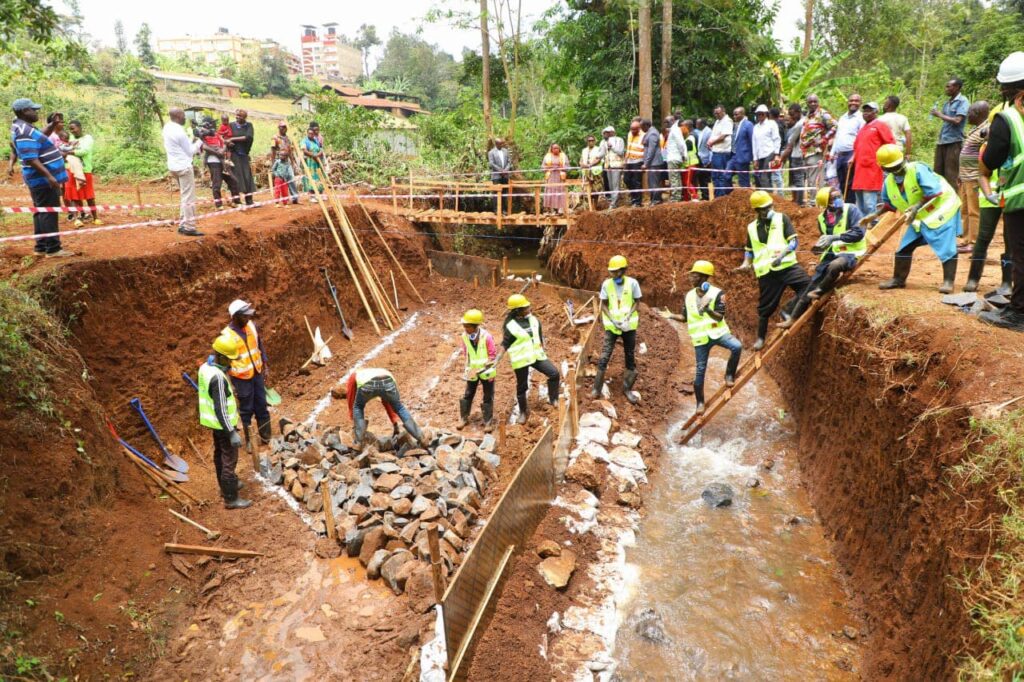
One of the bridges being constructed by trainees under Core Kenya.
She commended the trainees working on the roads for their valuable contributions to their community, adding that Kenya Road Board (KRB) will classify the roads at a higher level once completed.
The project’s component entails capacity building and sustainability of labour-based road maintenance technology in the targeted communities as well as enhancement of livelihood opportunities, effective project and knowledge management, and monitoring and evaluation.
The access roads will be rehabilitated through a labour-based technology known as ‘Do Nou’ technology which simply means using gunny bags with materials to improve sections of roads that are in dire need of repair or have been rendered impassable.
The Project Engineer George Kaluma said the focus of rehabilitating the access roads is to avert a situation whereby people living in underserved areas can’t get access to the roads as they go to their schools, hospitals, and markets, among other areas of interest.


